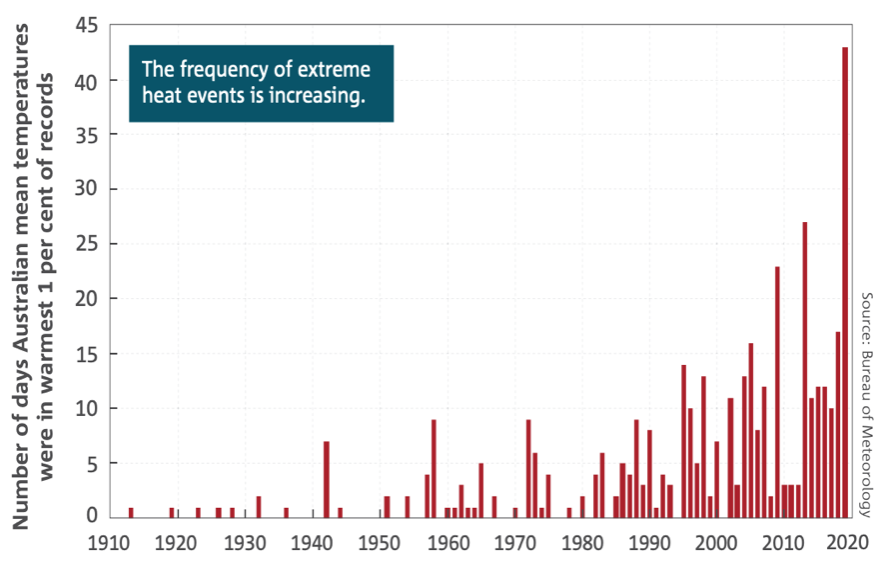Climate change has been declared a public health crisis by the World Health Organisation, Australian Medical Association and most Australian Specialist Medical Colleges. Climate change is first and foremost a health problem. The impacts on human health can be explained through the climate’s impact on the environment we interact with, as shown in the graphic below.

Our surf life savers are vulnerable to the same health problems as the rest of the community, however our physical competition and lifesaving activities on the beach, put our members at a higher risk. Lifesavers may also be exposed to extreme weather when responding to natural disasters.
Hundreds of people die prematurely every year in Australia due to the global warming which has already occurred (Vicedo-Cabrera et al (2021) Nature Climate Change). In addition, the PM2.5 emitted by burning fossil fuels has been estimated to cause 10 million premature deaths per annum globally (Vohra et al 2021, Environmental Research). Australian Doctors have collated research and declared that fossil fuels are a health hazard. The Australian Institute of Sport and related bodies have published guidance on avoiding exercise when exposed to significant bush fire smoke. (Mooney 2023)
Heat stress is more prevalent in extremes of age and outdoor athletes. Kids are particularly at risk as they do not adapt or compensate for heat as effectively as adults.
Renal impairment has been demonstrated in outdoor workers, exposed to higher temperatures.
Hot weather leads to more heart attacks. Heart attack increases in Melbourne by 38% if 3 consecutive days average Temperature > 27C or 10% increase if daily average temperature >30˚C
Premature births and stillbirths ~ increase 5% for every 1˚C rise in ambient temperature (BMJ 2020;371:m3811). At what stage of pregnancy should our members avoid outdoor competition and lifesaving?
Mental health admissions increased by 7.3% during heat waves, based on Adelaide data.
Emergency workers responding to natural disasters, including volunteer lifesavers, are at higher risk of mental health illness and post traumatic stress disorder. If you need help the National Emergency Worker Support Service is available.

For more detailed information on the health impacts of climate change read the Doctor’s for the Environment Australia report: “How climate change affects your health” (August 2021)
